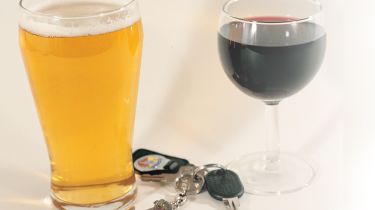Hangovers can make you unsafe to drive
Academic study reveals attention and driving abilities were impaired during a hangover, even after alcohol has left the system

A new academic study has revealed hangovers have a negative impact on our ability to drive.
In a meta-analysis of 11 existing academic studies, researchers from the University of Bath discovered “the ability to control a vehicle, as measured by deviation from a set course, was impaired” following a night of “heavy drinking”, even once little or no alcohol remained in subjects’ systems.
• What is the drink drive limit?
The report’s senior author, Dr Sally Adams, described hangovers as having “serious consequences for the performance of everyday activities such as driving”, while its lead author, Craig Gunn, explained hangovers led to “poorer concentration and focus, decreased memory and reduced reaction times”. One of the studies analysed found reaction times were almost 20 per cent slower in hungover subjects.
The researchers interrogated academic databases for terms such as ‘alcohol intoxication’ and ‘next-day effects’, locating 770 studies published over the last 40 years. Of these, just 11 were determined to have sufficient data to be thoroughly examined.
In conclusion, the researchers considered that while most companies have policies precluding alcohol intoxication in the workplace, in certain industries “employers might do well to consider revising guidelines on safety grounds.”
But while haulage firms and taxi companies may wish to institute anti-hangover clauses, “managerial decisions” and some problem solving skills were not found to be impaired by heavy drinking the previous night.
The current drink-drive limit in England, Wales and Northern Ireland is 80 milligrams of alcohol per 100ml of blood, while Scotland is stricter, setting a 50mg limit. NHS advice is it takes the body three hours to break down the alcohol in a 250-ml glass of wine, and two hours to process a pint of normal-strength beer.
Find a car with the experts



